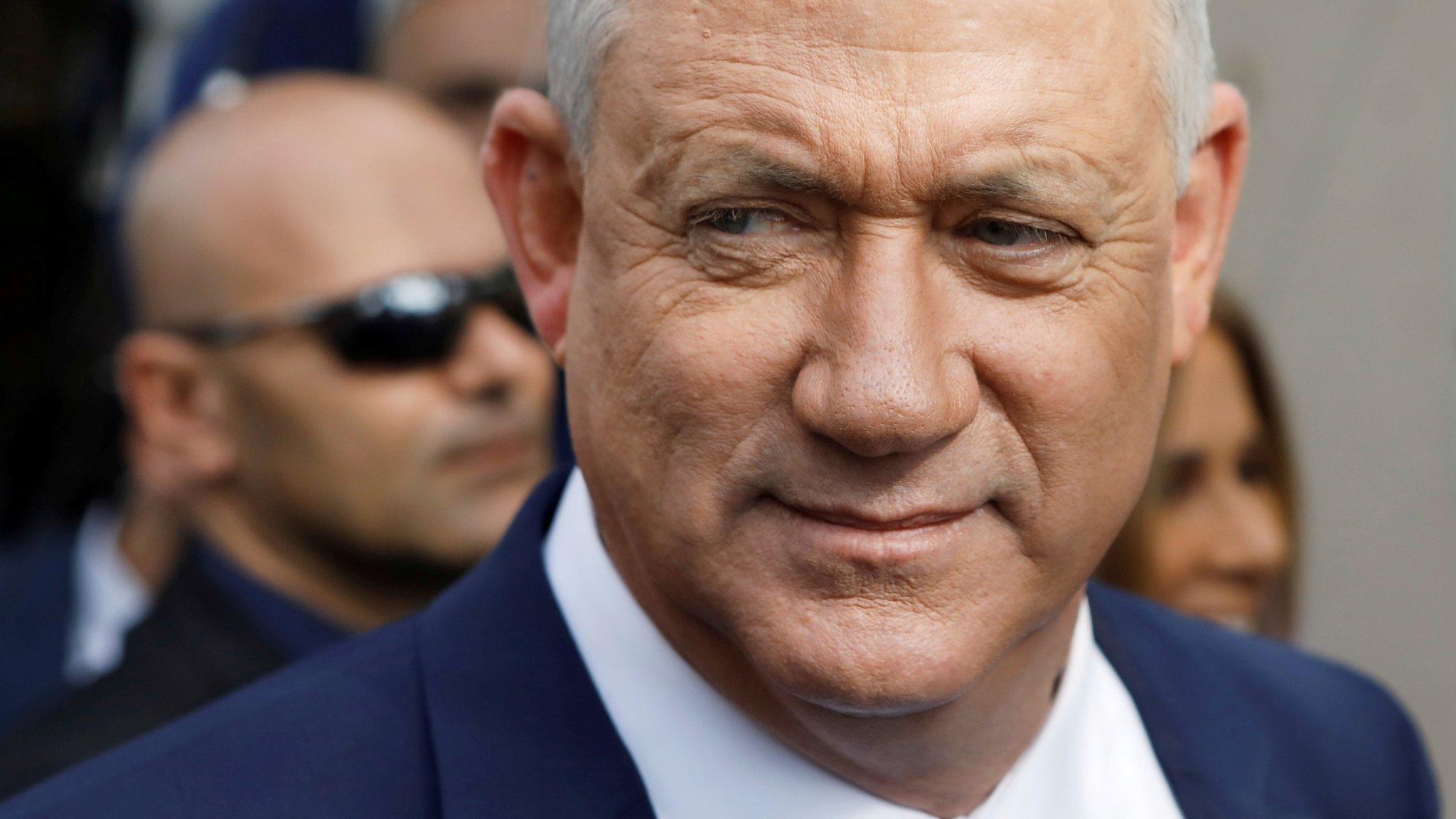Israel 'heading towards record fourth election'
- Published
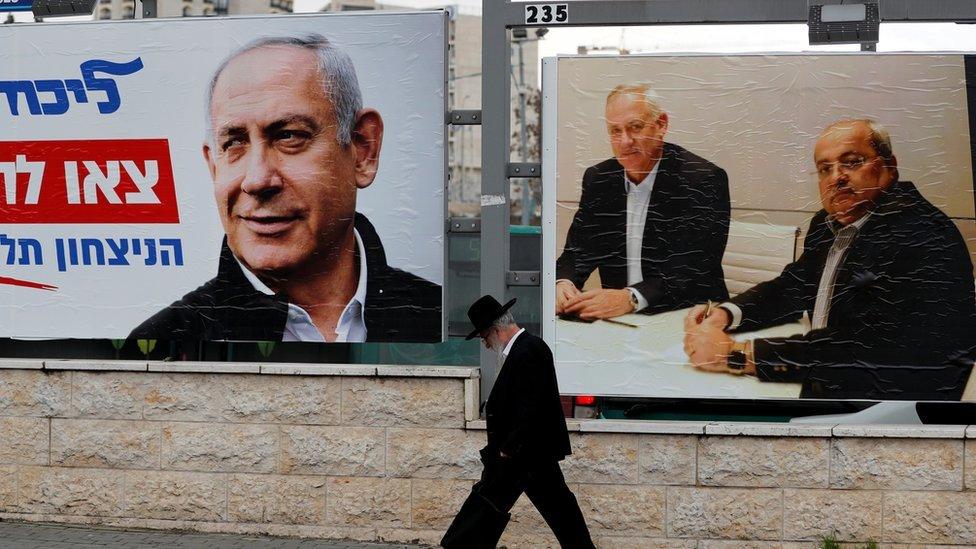
Political rivals have not managed to clinch a deal to form a unity government
Israel is facing the growing prospect of an unprecedented fourth election in just over a year after a deadline to form a government expired.
Its president passed the mandate to parliament after centre-left bloc leader Benny Gantz failed to seal talks to form a unity government in time.
If no-one else gets nominated within 21 days, new elections will be held by 4 August.
Israel has been in a political crisis after three inconclusive rounds.
Although Prime Minister Benjamin Netanyahu's right-wing Likud party won more seats than Mr Gantz's Blue and White in the most recent elections, Mr Gantz was backed by a thin majority of lawmakers and given the mandate to form a government.
However, Mr Gantz, former chief of staff of the Israeli defence forces, struggled to put together a governing coalition and, with the country in the grip of the coronavirus crisis, agreed to national unity talks with Mr Netanyahu.
Despite days of on-off negotiations, the two sides have been unable to strike a deal, although a joint statement said talks would continue.
Stumbling block
The discussions are believed to be stuck on a dispute over Mr Netanyahu's support for legislation to allow the government to overrule High Court decisions, including forcing him to resign.
The prime minister has been charged with bribery, fraud and breach of trust. He denies any wrongdoing.
November 2019 - Benjamin Netanyahu rails against corruption charges
He was meant to go on trial earlier this month, but it was postponed when the courts were ordered closed (apart from in certain cases) because of the coronavirus crisis.
Mr Gantz's mandate expired on Wednesday night and the task of producing a new candidate for PM passed to the Knesset (parliament) on Friday morning.
If a majority of MPs in the 120-seat assembly choose a new nominee, that person will have 14 days in which to try to form a government.
Should they fail, or if no-one is put forward, the Knesset will face dissolution and elections will be called by 4 August.
Israel has been in a prolonged political crisis since April 2019 when elections failed to produce a governing coalition. Two subsequent elections were also inconclusive.
- Published26 March 2020
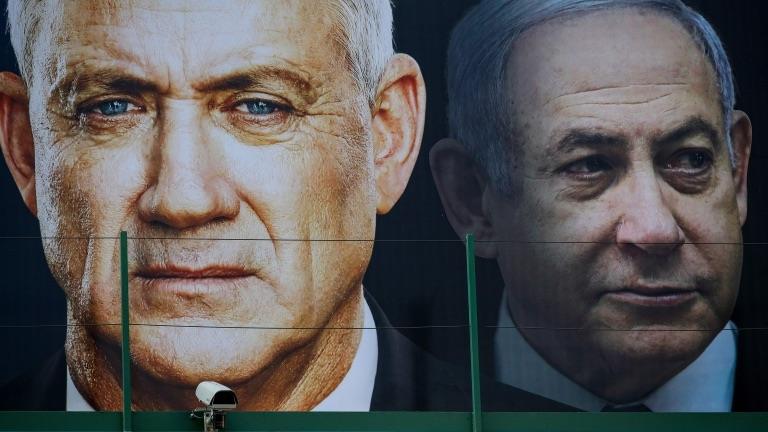
- Published16 March 2020
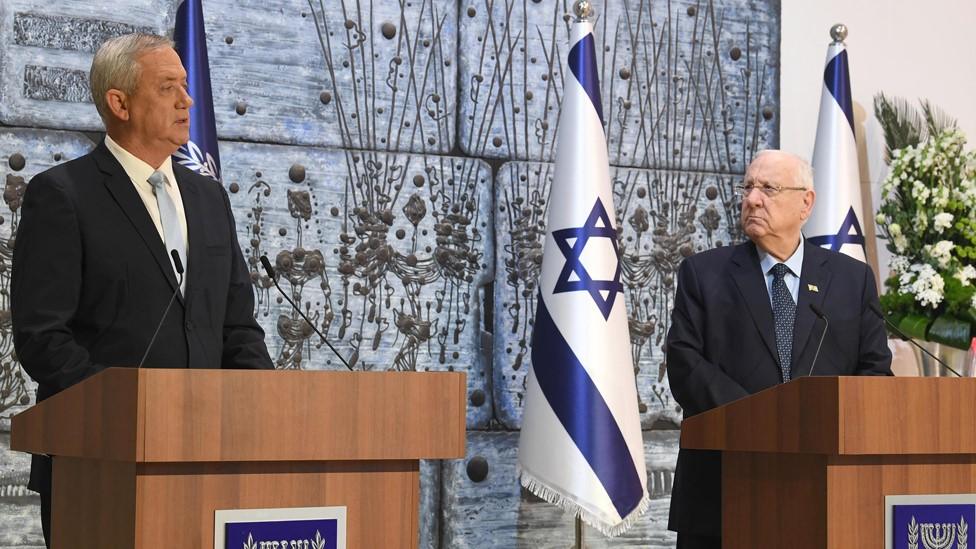
- Published28 January 2020
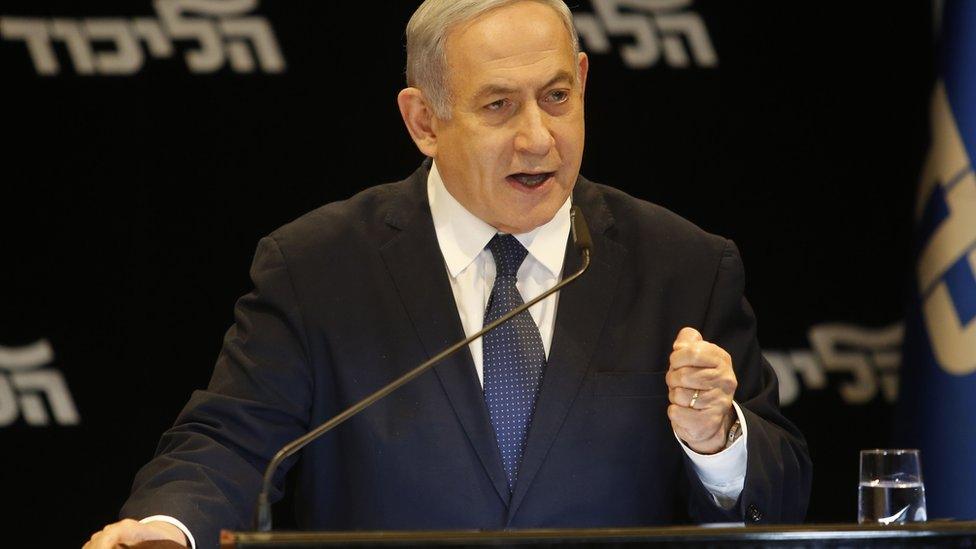
- Published21 November 2024

- Published14 May 2020
